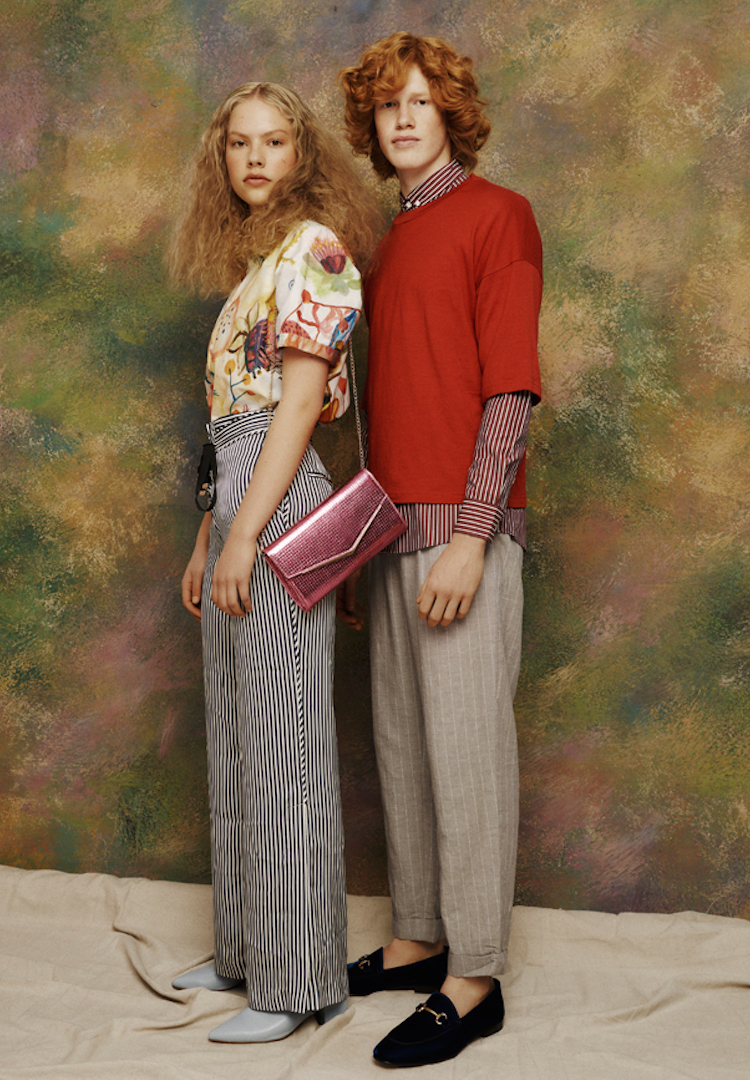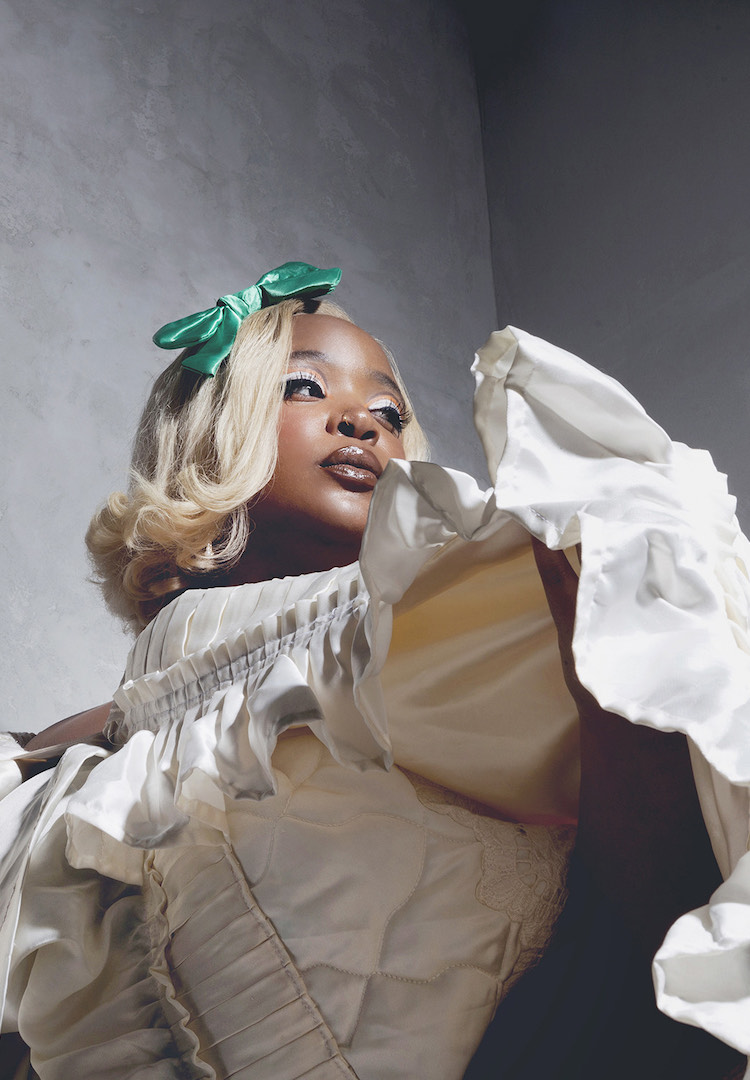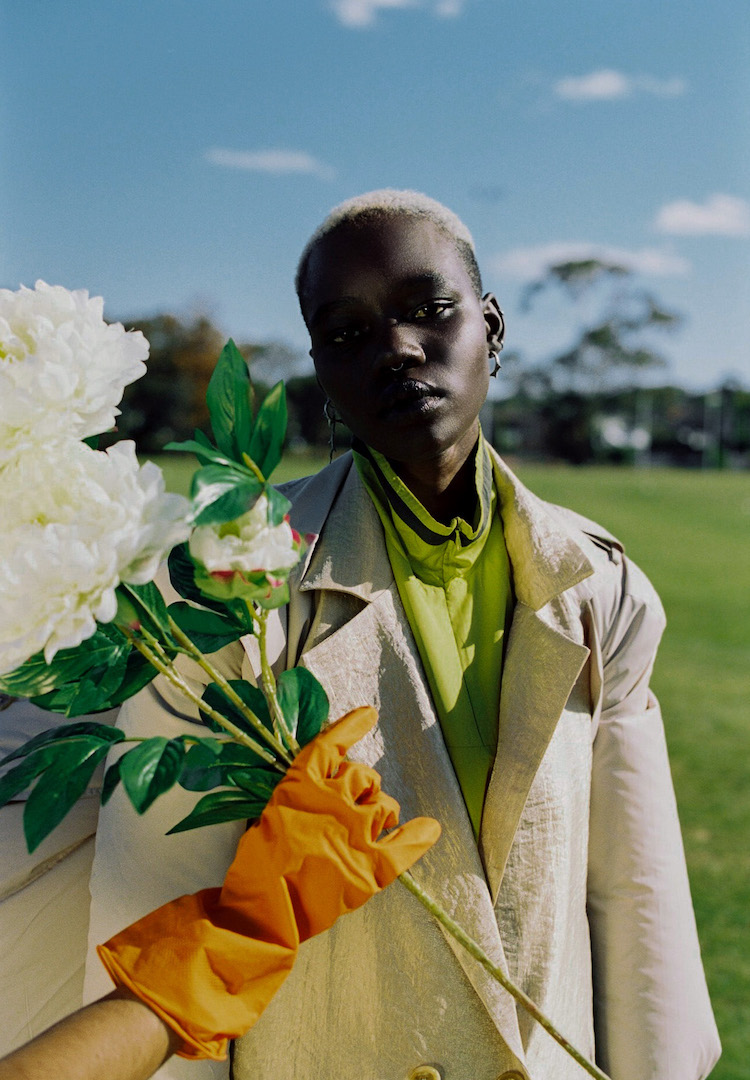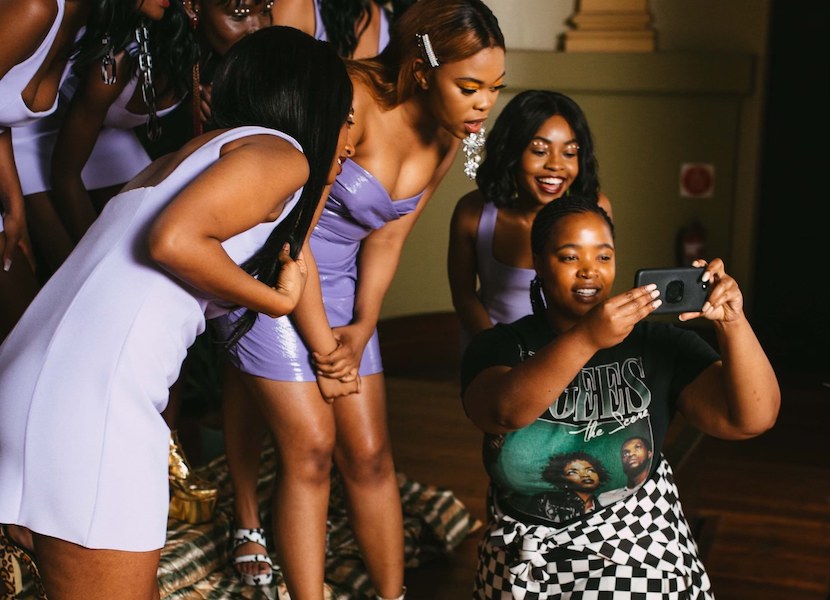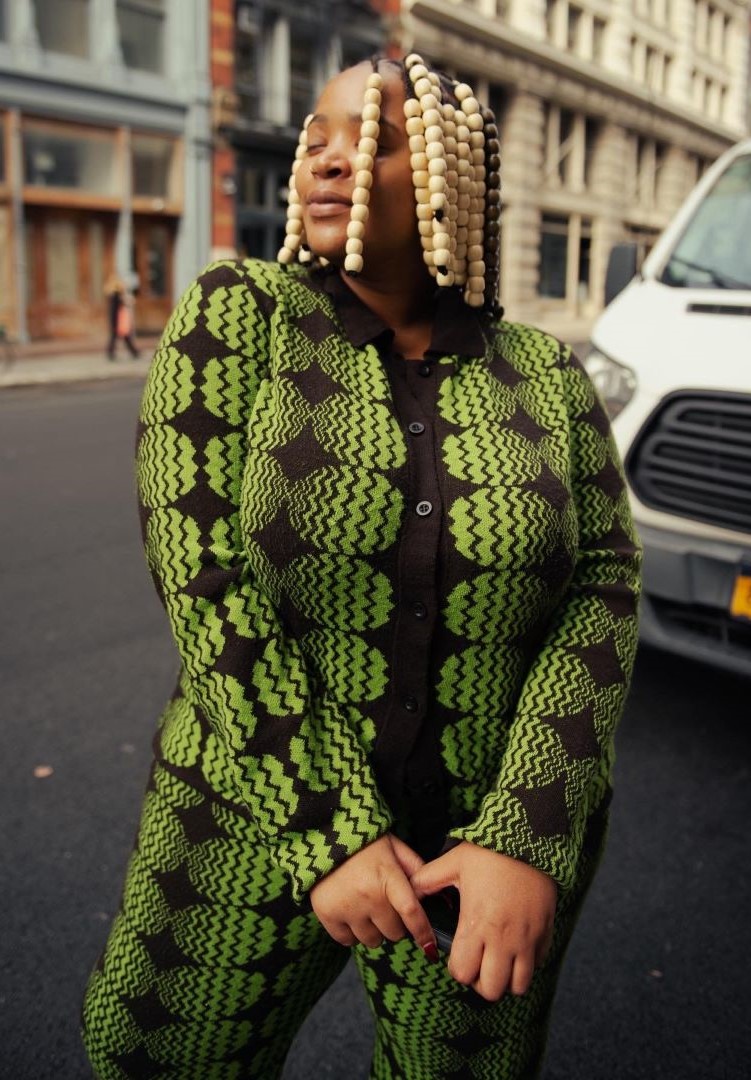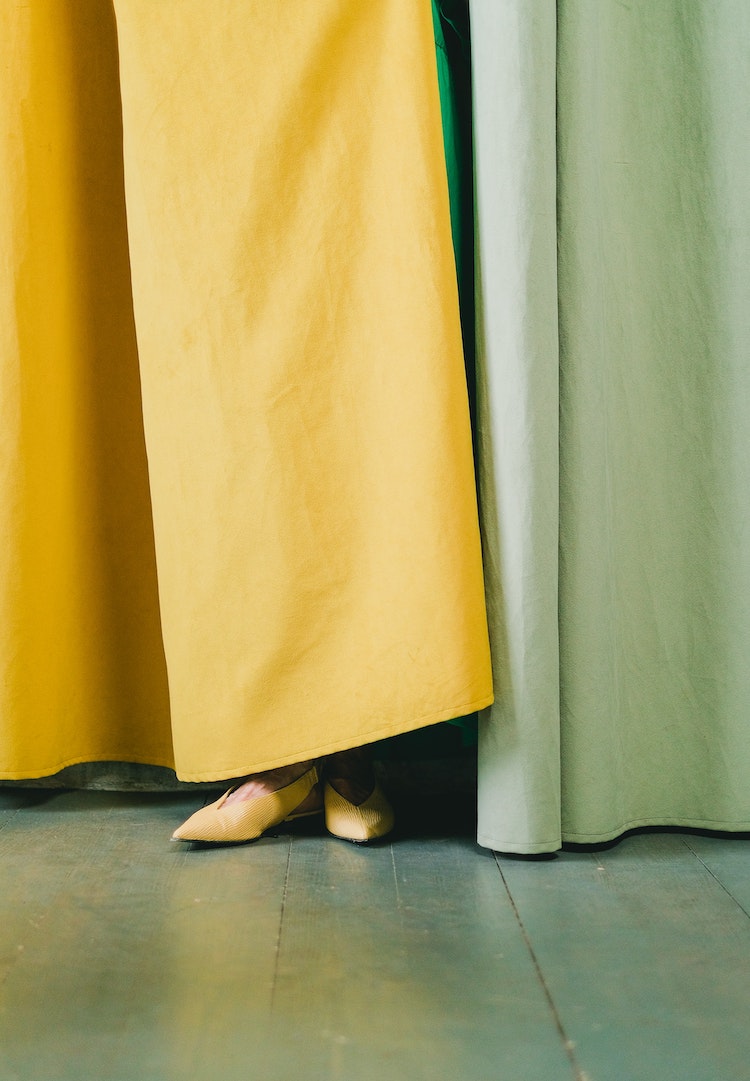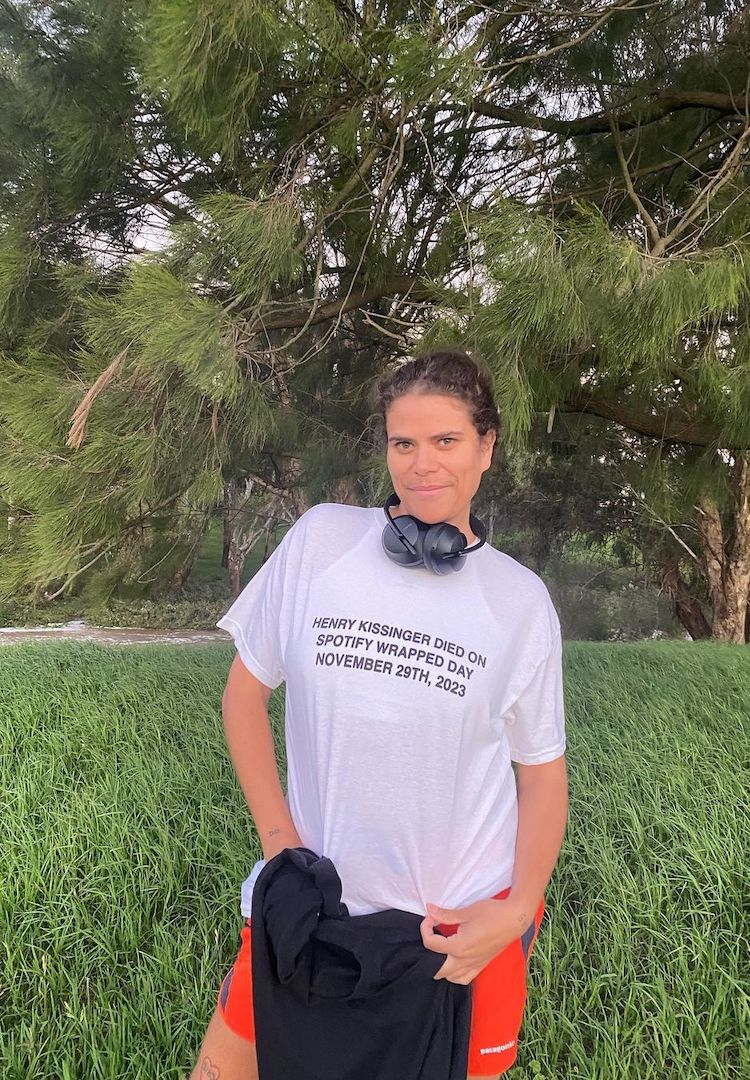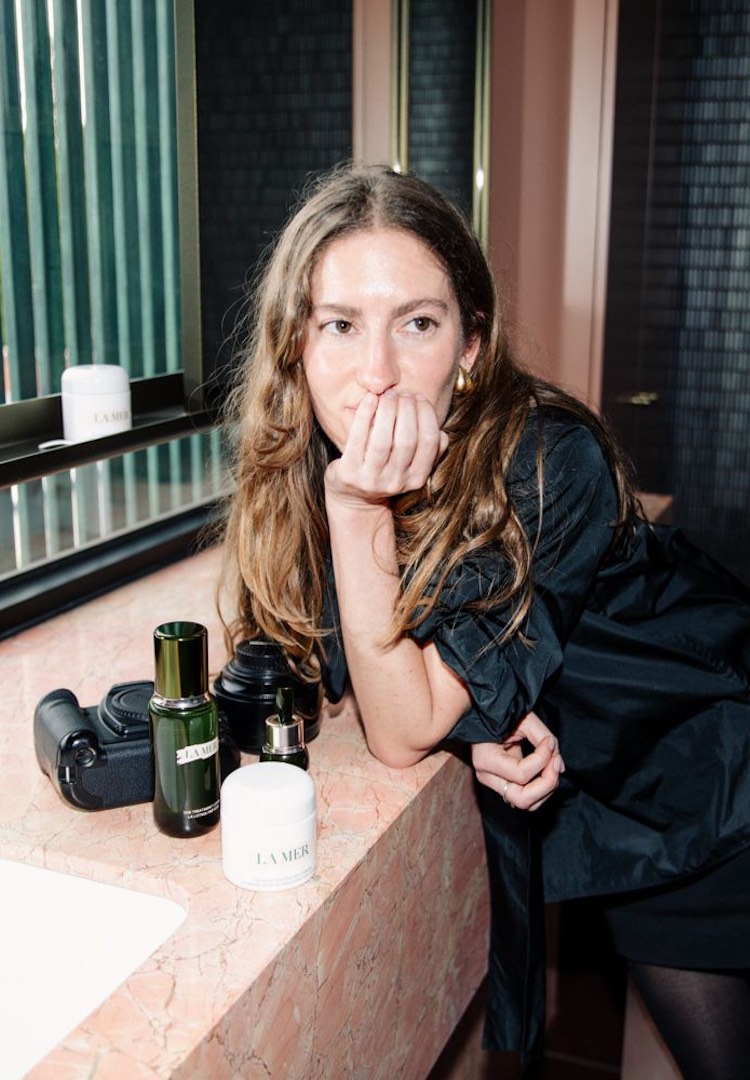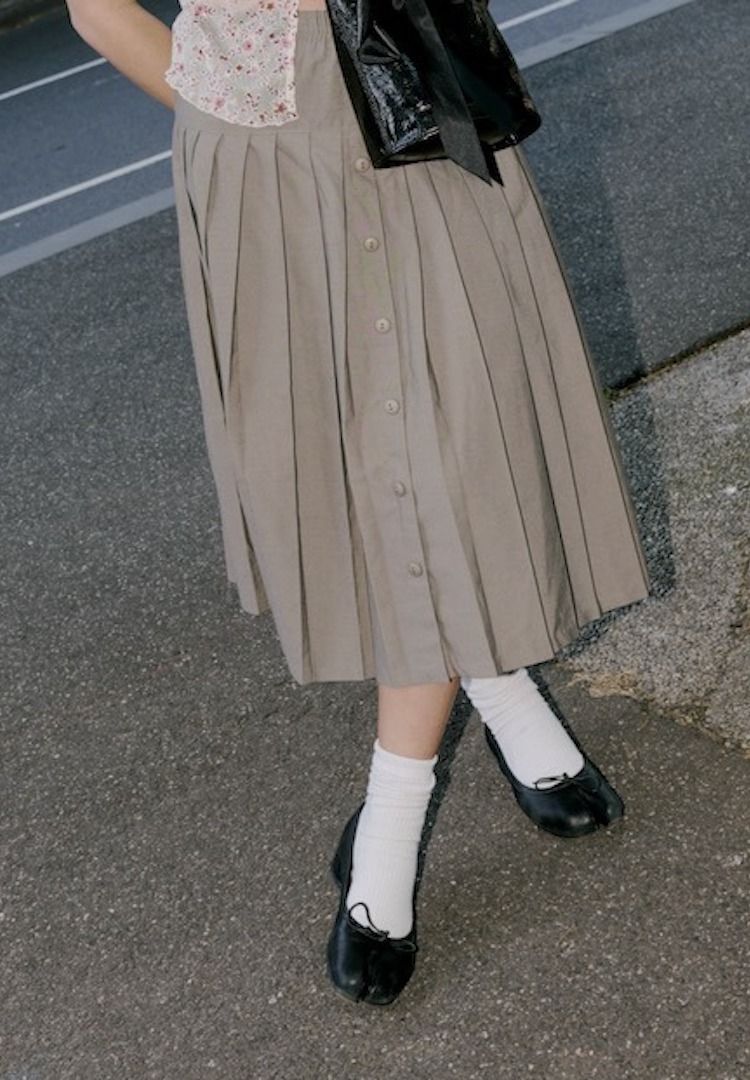How I Do It: Stylist, model and film and fashion creative director Ntombi Moyo
PHOTOGRAPHY BY Michaela Dutkova AND Aneta Urbonaite
WORDS BY CAIT EMMA BURKE
“The money will come, if you make good work. Work that you can be proud of.”
Impressive job titles are one thing, but what about people who have carved out their own niche and created a job specifically for them? Rather than landing that covetable LinkedIn byline, working for yourself presents a whole new way to choose your own adventure. That said, it’s not always about exploring the road less travelled – sometimes it can mean forging your own entirely untrodden path.
It’s a tough slog, but if being your own boss is your own personal dream, How I Do It is the column for you. We’ll talk to established freelancers and friends of FJ who’ve been at this long enough to have the benefit of hindsight, and they might be able to help you figure out how exactly they ‘do’ what they do.
Money, agents, timelines and tight turnarounds – this is how to hack the creative hustle. This week, we hear from New York-based Australian stylist, model and film and fashion creative director, Ntombi Moyo. Here’s how she does it.
Run me through the last, say, five years of your life. What’s been happening for you?
Work, work, travel, work and more work. Four to five years ago, I was working in a fashion photography studio as a stylist during the day. At night and weekends, I was working on personal freelance projects. I was doing a wild juggling act and it eventually felt like I had two full-time jobs. I eventually had to take a courageous step and officially began working full time for myself three years ago. Life has not slowed down since.
Describe to me, in real layperson’s terms, exactly what it is you do for work these days.
Simplified descriptions for family usually sound like “I dress people for filming and photo shoots.”
How on earth do you pay your bills?
This is always the hardest because grown folk cannot comprehend that we can be paid for creative work. The times have changed, you can actually choose to do a job that makes you happy and still earn money to sustain your livelihood. It is a booming international industry and there are some BOSS women who have gone before me and have been successful – June Ambrose, Zerina Akers and Misa Hylton to name a few. I gratefully have enough consistent work that pays me my rate or above.
In my earlier years, I definitely took on less fun jobs to make ends meet as the super creative briefs did not hold the strongest budgets but thankfully now I am approached with amazing creative briefs with great budgets. I keep within my budgets, something I honestly mastered recently but it has been a game-changer for my bank account. I invested more of my personal funds in earlier years to elevate projects which paid off as it was able to help me build a stronger portfolio which now gets me into rooms with bigger clients and more impressive budgets.
If you could have people listen, as in really listen, what do you wish they knew about what you do and why you do it?
I wish that they would see the tiresome long hours that go into working in this industry. I wish they could see how many of us are passionate about what we do and how many of us exist. I wish they could understand the joys and natural highs from creative work. I wish they knew that they have reasons to be proud and that there are other commendable accolades outside of medicine and law.
Take me back to age 18, when you left school. Did you have any sense of what you wanted to do, and if so, what steps did you first take?
At 18, I was convinced that I wanted to be a lawyer and a businesswoman. I went on to get my degree in business management and started a school of disability education at the age of 21 with a friend who was much older than me. Right before opening the school, I was overwhelmed with a sense of feeling like I was closing myself into something that I was not passionate about. I had never cared for passion prior to this as we were always taught that work was not about enjoyment but merely a means to getting money to fund your life.
I took a year off. I told myself I would go pursue my passion for one year and return to climb the corporate ladder shortly. I never quite made it back. I was so serious back then, so stressed about life and my timeline instead of being a present 18 year old. I am now an older, wilder and freer version of myself now. FREE AF.
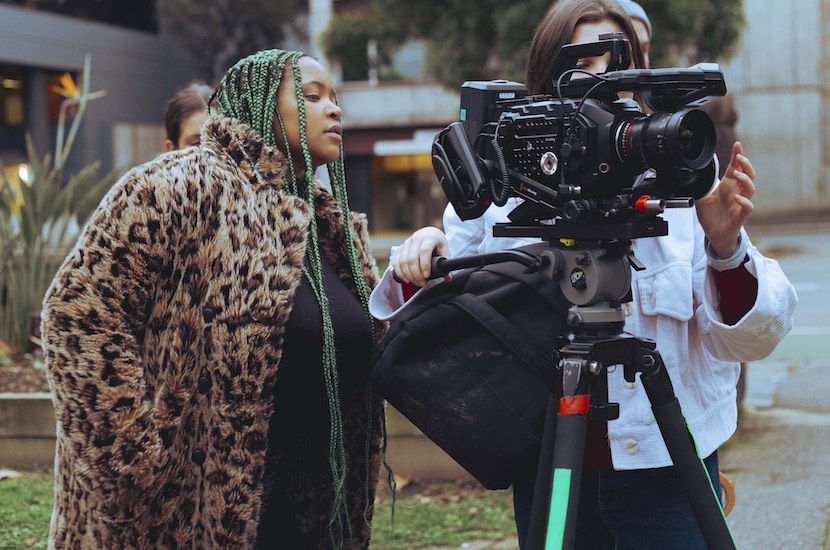
Ntombi on set
What about your early twenties, when you were just finding your feet – did you have any sense of where you were going, and if so, how did you get there?
I had no idea where I was going… I also always had a feeling as if I was throwing away my life initially before it made financial sense. My perspective changed when I felt myself literally becoming a happier person. I had always above all wanted to be genuinely happy. I know a lot of people say this but it was really deep for me. I had a challenging early life and needed the rest of my life to be as positive as attainable. Once I felt this liberation within myself and once I connected it to my work lifestyle, I knew that I had to keep going. Money was never the goal, public success was never the goal. I was focused on wanting to wake up every day and chasing the feeling of freedom.
How did you learn to set your own rates? Do you have any resources to share/any bits of advice when it comes to dealing with the money side of things?
People often take advantage of freelancers by not respecting their time off. They think you can work anywhere, anytime. I have had people ask me for styling related information as we are spending time doing something non-work related. They do not understand that they are making you work in that moment, despite the casual setting. This is really unfair and odd behaviour. Email me and set up a meeting, give creatives the same respect that you give people in other industries.
I set my own rates by asking around locally to hear what other stylists were charging per hour. A big rule for me at the start was to always make the client state their desired budget for my time and the wardrobe allocation. Often I would find that they would offer more than I was initially thinking! If it was too low, I would then make them adjust accordingly/align with fair rates. I still often use this tactic. Within production, I believe you need to spend money to make money. If I relied on the small budgets that were presented to me, in the beginning, to make a name for myself, I would not have gone very far.
I spent all my money on my projects in the beginning, it was awful and really stressful but the output and quality produced secured future work. Live cheap, limit your spendings elsewhere during this period and hone in on your craft. The money will come, [if you] make good work. Work that you can be proud of. Get a good creative tax agent who deals heavily with freelancers and a good invoicing system. I started off on Waveapps, simple and free! Keep receipts for everything, take a photo of every receipt and upload them to a folder because paper fades with time, claim everything that you can!
What advice would you give to someone thinking of leaving school and freelancing for a while in your chosen creative field?
Finish school, high school at least. I am extremely grateful that I have my university degree to fall back on if I were to choose to pursue something else one day. It is my security blanket. There is a comfort of knowing that it is there – I did a broad business degree which I am able to apply to my creative work. Truthfully, I do not use a lot of what I learned but I do know for a fact that having a degree and being able to say that has opened many doors.
I do at times wonder what it would have been like to go straight into the industry after high school, to get a head start in experience and knowledge. It can be argued beneficially both ways but I think it is important to finish high school. Freelancing is usually tough for most in the beginning, apply yourself… work hard and become an expert in your field.
Check out the other How I Do It interviews here and our non-freelancer-focused career series How I Got Here here.
Looking to step up to a career in fashion? Each week we send a wrap of industry jobs straight to your inbox. Enter your details below and we’ll keep you in the loop, or browse current openings here.

